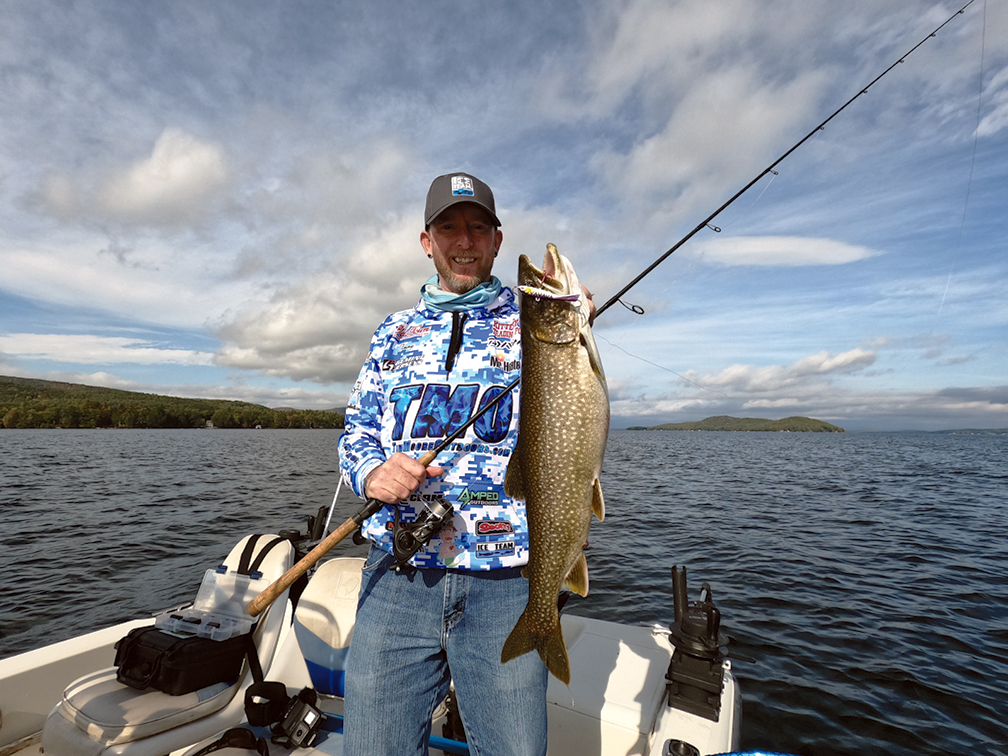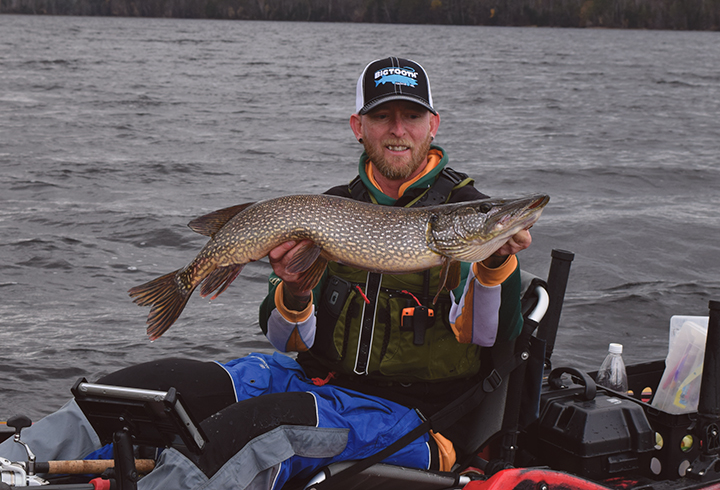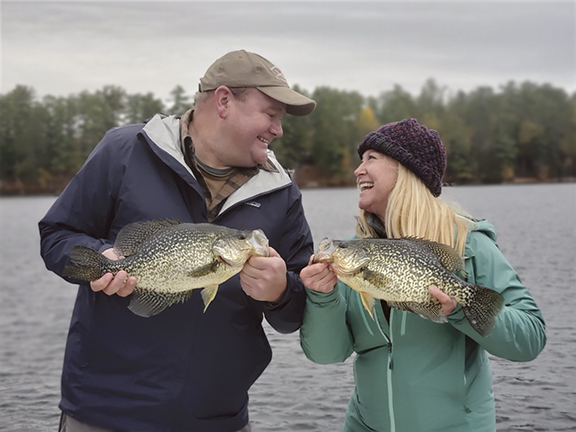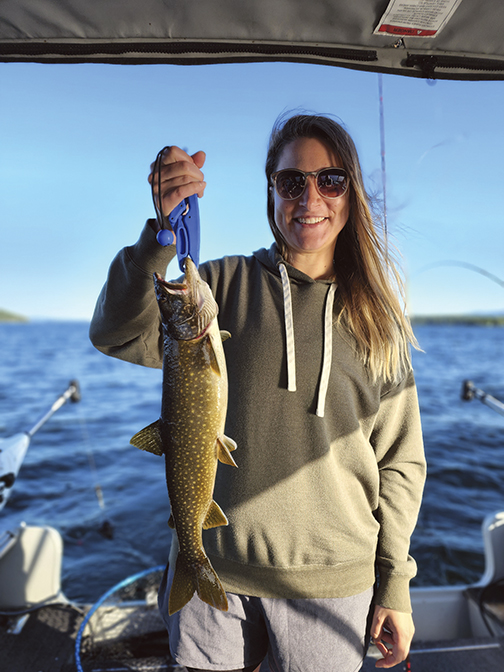When Good Lures Go Bad

PHOTO: Tim Moore struggled to get this fish to bite, but once he figured out how they wanted his lure it was game on.

By Tim Moore
Contributing Writer
All fish have a place and time that they bite best. How they bite is dependent on many factors such as weather and temperature, water temperature, clarity, and time of day. It could be a particular lure profile that triggers them that day, or maybe a color, or a weather pattern. When one of these factors changes, so does the way fish behave toward prey items, like your lure. These abrupt changes in fish behavior can be frustrating, especially when your favorite lure isn’t working. Sometimes the most subtle change to your lure will turn things around.
Have you ever fished your favorite spot, with your favorite lure, yet still can’t get a bite? I’ve lost count of how many times I’ve cycled through lure after lure, trying to make fish bite on days when they were finicky. I have also had days when I missed most of the fish that bit, yet never changed how I fished the lure I was using. Some days it is a change in weather that shuts the fish down. These days are tough to deal with. Other days there is a much simpler reason and one that is more within your control.
On my last day jigging lake trout this year, I was fishing a new lure, the Tikka Mino from Clam Outdoors. The Tikka Mino is similar to the long popular Jigging Rap, only it has a solid one-piece design and is made of zinc alloy, making it legal in New Hampshire waters. It has been a long time since I have been able to use this type of lure since all others on the market are made from lead, and therefore illegal to use in New Hampshire fresh waters. I headed out expecting to crush the fishing, as most who use this lure on a regular basis claim it to be one of their go-to lures. I spent the first two hours of the trip trying to get the fish to bite, but they seemed reluctant. After a couple of hours of trial and error with different jigging cadences, I finally landed on one that worked very consistently.

Northern pike are one of the best examples of moody fish. There are days when they will hit a pearl Whisperer from Daddy Mac Lures on an offset hook with a vengeance, but let the water cool down a few degrees in a short period of time, and they won’t touch it. These are the days when many anglers begin cycling through different lures, trying in vain to trigger a response from wary fish. Well, this is when I break out a red permanent marker or lure dye pen and color the sides of the Whisperer with it. White spinnerbaits are great for pike, but they also have days when the fish won’t hit them, and the red marker often does the trick. Neatness doesn’t count, just a few scribbles of the marker to make your lure look wounded, or just different will often make it look too good for a fish to pass up.
Spinnerbaits and spoons are known for causing short strikes. A short strike is when a fish hits the front, or head, of the lure and misses the hook. It’s a painful experience to have only one lure that seems to work that day, yet most of the fish that hit it are missed. One way you can prevent short strikes is to add a soft plastic lure to your hook. Short strikes are so common with spinnerbaits that some lure companies offer them with a soft plastic tail already added. I fish white and red spinnerbaits for pike a lot in dirty water and sometimes find it useful to add a Whisperer to the hook, but a curly-tailed grub also works well. Adding a soft plastic trailer makes the lure longer, which will often shift the strike zone back toward the hook and increase the number of fish you catch. There are many modifications that can be made to most lures such as changes in your jigging cadence, adding color, rigging trailers, or even bending them to change how they swim. The trick is to be creative. The next time you’re struggling and want to begin cycling through different lures, first consider doctoring the ones that you know work or changing how you are fishing it. The smallest modification can turn a frustrating day of fishing into one of the best that season. Don’t be afraid to think outside the box.
Tim Moore is a full-time professional fishing guide in New Hampshire. He owns and operates Tim Moore Outdoors, LLC. He is a member of the New England Outdoors Writers Association and the producer of TMO Fishing on YouTube. Visit www.TimMooreOutdoors.com for more information.



